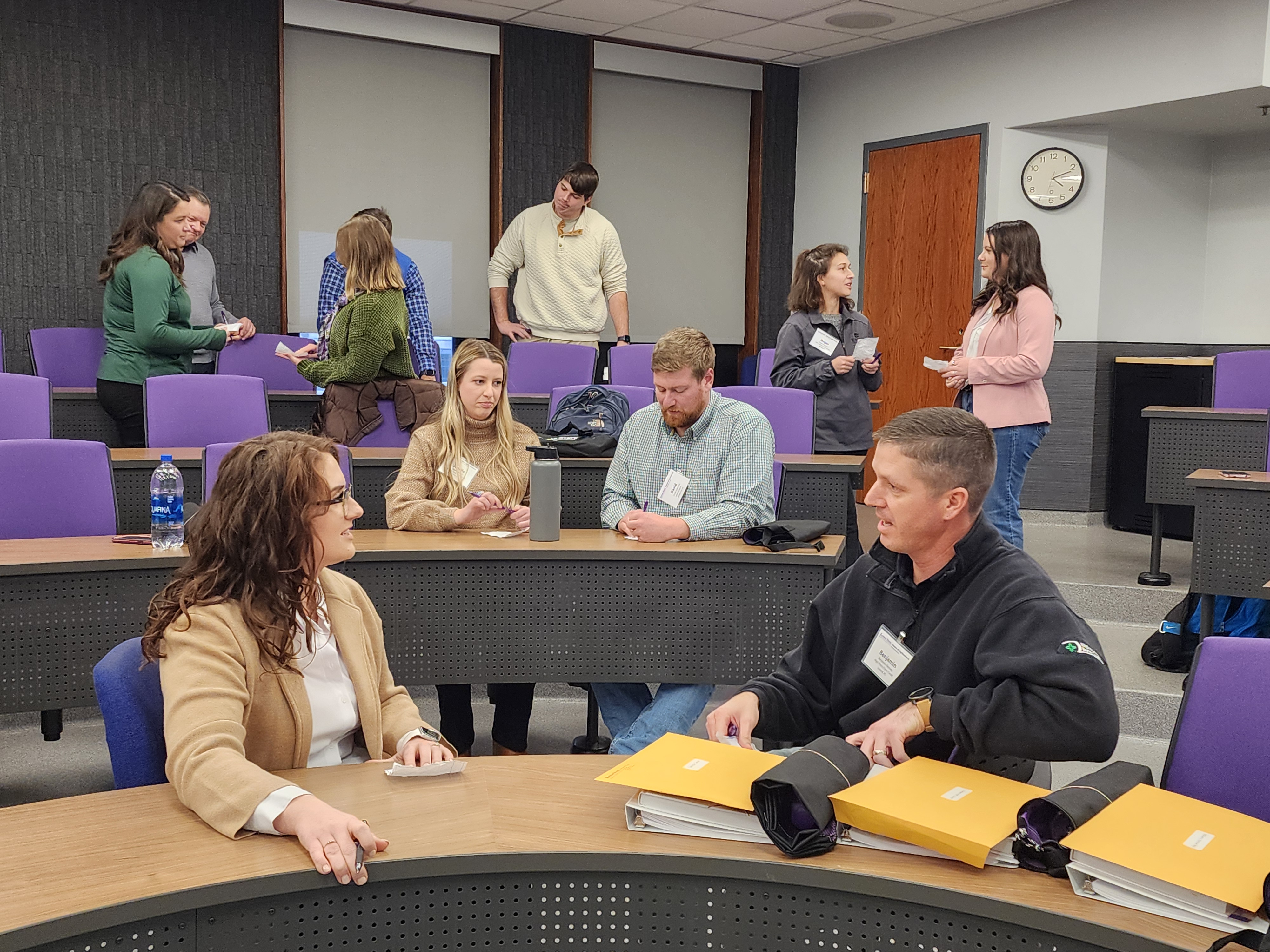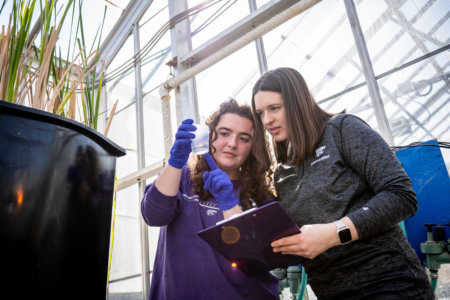Pendurthi Sita Mahalakshmi’s journey in agriculture began close to home. Hailing from a family ingrained in the field, she actively revived barren farmland owned by her family. This involved experimenting with land preparation techniques, cultivating exotic vegetables, and selecting horticulture trees suited to the regional climate.
It was during this process that Mahalakshmi recognised a gap in her skillset — a lack of formal business acumen applied specifically to agriculture. Determined to boost her capabilities, she searched for a programme that aligned with her aspirations. This led her to Kansas State University‘s elective subject, “Comparative Food and Agriculture Systems” and later the Master of Agribusiness (MAB) programme.
K-State MAB programme isn’t your typical graduate degree. This award-winning programme has a diverse student body, attracting individuals from over 40 states in the US and more than 30 countries. This global reach underscores the programme’s commitment to education that transcends geographical boundaries.
Unlike an MBA focused on broad business principles, the MAB is a flexible, online business-focused programme specifically designed for professionals in the food, animal health, and agribusiness sectors. The curriculum emphasises informed decision-making, analytical thinking, and problem-solving techniques tailored to address agribusiness firms’ challenges.
One of the programme’s greatest strengths is its flexibility. Kansas State University has been a pioneer in online education for over 25 years, with more than 700 students and alumni from the US in the MAB programme. Recognising the demands working professionals face, K-State MAB is offered entirely online. While traditional on-campus sessions in August and October remain crucial, international students can now fully engage with the programme virtually through Zoom technology, eliminating the need for physical relocation.
Course lectures are delivered via customised thumb drives or downloadable modules, allowing students to “go to class” whenever and wherever it suits them. The programme also records recitation sessions, ensuring students can access missed information and stay on track. Assignments, exams, presentations, research papers, and case studies further solidify student understanding and develop critical thinking skills.
Just ask Mahalakshmi, who describes it as a “great experience.”
“I had a few weeks of campus sessions in Hong Kong and Kansas City away from my country, and I also joined an agribusiness tour to Brazil and Argentina,” she says. “Although the classroom atmosphere provides peer interaction, the online remote class was no less of an experience as I attended live scheduled sessions and connected very well with peers, doing teamwork when required.”

Sita Pendurthi took part in campus sessions in Hong Kong and Kansas City as well as an agribusiness tour to Brazil and Argentina. Source: Kansas State University
Her favourite classes were Computer Decision Tools for Agribusiness, Agribusiness Financial Management and Applied Agribusiness Logistics. Add in supportive faculty, and Mahalakshmi had quite an experience. “The support from Kohl, the MAB programme coordinators, helped me maintain my commitment to successfully completing my master’s,” she says. “My major professor, Dr. Allen Featherstone, was a guiding factor during and after my MAB programme. I am ever grateful to him.”
The MAB programme’s commitment to using technology to enhance learning has garnered many awards. Faculty and the programme have been recognised by organisations like the University Professional and Continuing Education Association (UPCEA) and the American Distance Education Consortium (ADEC).
That’s not all. The programme goes a step further by encouraging the application of learned concepts to real-world situations. Students can use their workplaces as laboratories, tackling company-specific issues while mastering new skills. This practical approach ensures graduates are prepared to make an immediate impact within and even beyond their professional spheres.

With over 700 students and alumni from the US and over 30 countries, the MAB programme boasts a diverse and dynamic community. Source: Kansas State University
This versatility is due to the MAB programme curriculum going beyond traditional business subjects like finance, marketing, and management. It delves deeper, integrating these core concepts with industry-specific topics like human resources and marketing applied directly to animal health and agribusiness challenges. The result? Students develop in-depth problem-solving skills, a critical advantage compared to broader MBAs focusing on general operational and strategic issues. The MAB also tailors each course to a student’s chosen industry and offers electives to further customise the curriculum to suit their needs.
What’s more, the programme’s curated curriculum features high-quality textbooks and comprehensive module notes. This made learning engaging, helping students like Mahalakshmi grasp new knowledge easily. “This programme helped me understand international policies, improve on organisational behaviour, understand global food distribution and ability to calculate risk and make decisions,” she says.
The final year of the programme culminates in a professional thesis. Unlike a traditional research thesis, this project emphasises applying acquired skills to solve a real-world issue faced at the student’s workplace. For Mahalakshmi, her thesis explored the economic potential of mango butter production in India. Driven by the desire to create wealth from waste, her research highlighted its environmental and social benefits.
That’s when she found that mango butter could substitute for cocoa butter as it shared similar physiochemical properties. “In my opinion, mango butter and kernel have the potential to be listed on the futures market as commodities,” Mahalakshmi says.
Today, she has developed a mango seed decorticator, patented it, and successfully extracted mango seed oil using the hydraulic press method. “In the present day, every decision I make in agriculture, whether personal or assisting a fellow entrepreneur, is informed by the knowledge and skills I gained from the MAB programme.
Learn more about the MAB programme.
Follow Kansas State University on Facebook, Instagram, LinkedIn, X, and YouTube












